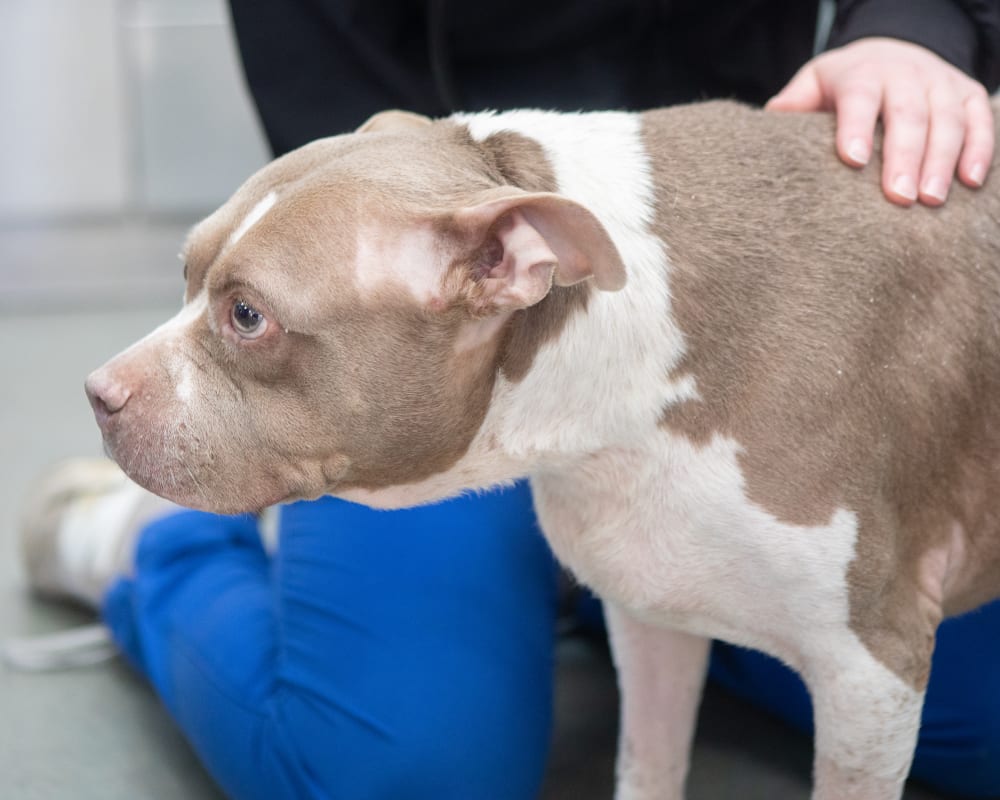Veterinary Cardiology
At Atlantic Coast New York Veterinary Specialists, our veterinary cardiologist offers state-of-the-art diagnostic procedures for the evaluation of heart conditions in cats and dogs.
Cardiology Services for Pets
While your family vet is familiar with your pet and can diagnose and treat many issues, some conditions require specialized diagnostics and care to ensure your pet has the best outcome and recovery.
At Atlantic Coast New York Veterinary Specialists, our veterinary cardiologist is trained to diagnose and treat cardiovascular disease in pets.
Cardiology services cover disorders such as hypertrophic cardiomyopathy, congestive heart failure, degenerative valve disease, dilated cardiomyopathy, systemic hypertension, congenital heart disease, cardiac tumors, and arrhythmias.

Our Veterinary Cardiologist
Dr. Kevin Schabbing is our veterinary cardiologist at Atlantic Coast New York Veterinary Specialists on Long Island.
Dr. Schabbing is knowledgable and experienced with complex cardiology cases and his commitment to both the patient and pet owner remains his highest priority.
Why Choose Our Long Island Cardiologist
Our veterinary cardiologist is passionate about the health and well-being of pets. They will always provide your beloved cat or dog with the highest level of care.
Our team thoroughly informs our clients of the best possible treatment plan and happily walks clients through each step of the process. We always do our best to keep you and your companion as comfortable as possible. The experienced veterinarian and on-site diagnostics services at our clinic allow us to minimize stress and maximize convenience for you and your pet.
Common Heart Conditions & Their Symptoms
The most common forms of heart disease seen by our Long Island vets include congenital heart disease, hypertrophic cardiomyopathy (HCM), valvular degeneration, dilated cardiomyopathy (CDM, and heart arrhythmias).
When it comes to cats and dogs, there are several types of heart disease that can develop. Although different forms of heart disease can have their own symptoms, there are some signs that pet owners can keep an eye out for.
Symptoms most often associated with heart disease in cats and dogs include:
- Coughing
- Weakness
- Lethargy
- Hind leg paralysis
- Difficulty breathing
- Fainting
- Collapse
- Constant diarrhea
- Weight loss
- Abnormal swelling
If you notice your cat or dog exhibiting any of the signs mentioned above, it is always best to err on the side of caution and consult with a veterinary cardiologist as soon as possible.
Evaluating Heart Conditions
At your appointment, the cardiologist will perform a complete and thorough physical examination of your cat or dog. Based on these initial findings, we will discuss additional testing as necessary.
The cardiologist will also review your pet's health history and current medications. Depending on your animal's medical condition, diagnostic testing may include:
Electrocardiography (ECG): This is a common test used to assess the condition of the heart. This test can uncover abnormalities in the heart by analyzing the electrical impulses passing through.
Echocardiography: A useful diagnostic tool that takes an ultrasound of the heart. This allows your vet to take a look at the various structures inside of the heart.
Radiographic Evaluation: Performed to determine any obvious signs of a heart abnormality, this imaging method lets your vet analyze the size and structure of your pet's heart.
Blood Pressure Measurements: This may be necessary following the diagnosis of a heart condition. These tests are used to monitor the arteries as the heart is pumping.
Apply for Financing
With CareCredit and Scratchpay Financing, you can get your pet the veterinary care they need at Atlantic Coast New York Veterinary Specialists.